Life
Sign up for our newsletter
We summarize the week's scientific breakthroughs every Thursday.
-
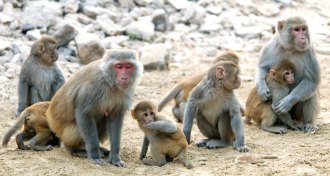 Neuroscience
NeuroscienceAnxiety in monkeys is linked to hereditary brain traits
A key brain connection may be behind childhood anxiety, brain scans of monkeys suggest.
-
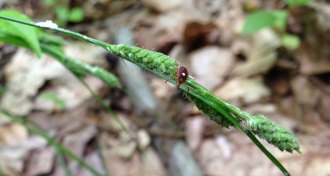 Health & Medicine
Health & MedicineThis tick may play a part in gumming up your arteries
Having antibodies to a sugar tied to red-meat allergy is associated with more plaque in the artery walls, a small study shows.
-
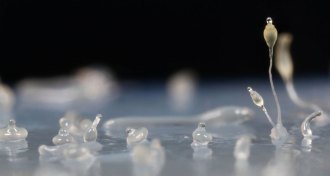 Microbes
MicrobesHow a slime mold near death packs bacteria to feed the next generation
Social amoebas that farm bacteria for food use proteins to preserve the crop for their offspring.
By Susan Milius -
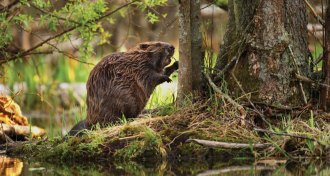 Animals
AnimalsGot an environmental problem? Beavers could be the solution
A new book shows how important beavers have been in the past — and how they could improve the landscape of the future.
-
 Genetics
GeneticsMost Americans think it’s OK to tweak a baby’s genes to prevent disease
Americans generally favor tweaking a baby’s genes to reduce the chance of getting a disease, but think boosting intelligence is a step too far.
-
 Genetics
GeneticsHere’s why wounds heal faster in the mouth than in other skin
Wounds in the mouth heal speedily thanks to some master regulators of immune reactions.
-
 Health & Medicine
Health & MedicineLowering blood pressure may help the brain
Aggressively treating high blood pressure had a modest positive effect on the development of an early form of memory loss.
-
 Tech
TechReaders share their experiences with DNA ancestry tests
Readers delighted in learning about Emmy Noether, and asked about autonomous taxis and how the first Americans may have arrived via coastal routes.
-
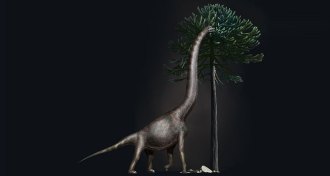 Paleontology
PaleontologyPaleontologists have ID’d the world’s biggest known dinosaur foot
Bigfoot has been found in Wyoming. It’s not a hairy, apelike creature; it’s a dinosaur.
-
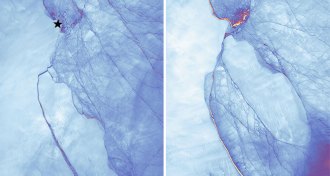 Earth
EarthThe giant iceberg that broke from Antarctica’s Larsen C ice shelf is stuck
A year ago, an iceberg calved off of the Larsen C ice shelf. The hunk of ice hasn’t moved much since, and that has scientists keeping an eye on it.
-
 Genetics
Genetics50 years ago, scientists took baby steps toward selecting sex
In 1968, scientists figured out how to determine the sex of rabbit embryos.
-
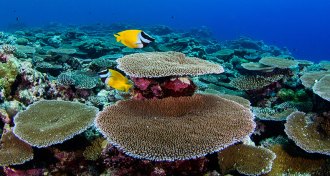 Oceans
OceansShallow reef species may not find refuge in deeper water habitats
Coral reefs in deep-water ecosystems may not make good homes for species from damaged shallow reefs.